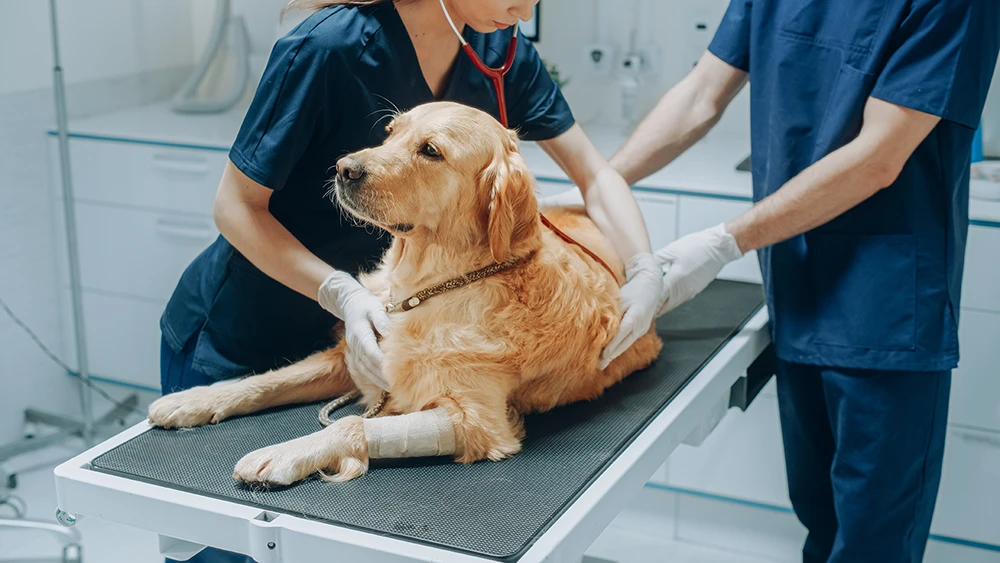Dr. Danielle Adamo
Veterinarian
A physical exam may tell us that your pet is sick, but may not be able to tell us exactly what is ailing them. We also cannot obtain a comprehensive health profile without going more in depth. With our cutting-edge cat and dog imaging, diagnostics and veterinary experts, we can examine your pet internally using minimally-invasive technology*. Furthermore, this technology gives us faster, more accurate results that we can interpret to find the best diagnosis and therefore the best treatment.
For healthy pets, our diagnostics help us set a baseline for their overall health, which we can use as a benchmark for future health evaluations. These tools give us the opportunity to conduct a much more thorough exam and catch problems that might otherwise go undetected.
*Must have an existing client/patient relationship with Dundee Animal Hospital; cannot be a new client referral.
To fully assess your pet's health status and find potential problems, we can utilize:
A wide range of health issues, from minor to major, can be detected with our diagnostics capabilities. We can measure blood cell count and electrolytes using our lab equipment, and identify problems such as heartworm disease and tapeworm. With cat & dog X-ray, we can find bone fractures, intestinal blockages, tumors, heart and lung problems, and indications of hip dysplasia and arthritis.
Ultrasound is most effective for studying the shape, size and texture of the internal organs in the abdominal cavity. Furthermore, it can help us detect pregnancies, cysts, tumors, bladder stones, and fluid in the abdomen. Your veterinarian may recommend an electrocardiogram if your pet has an abnormal heartbeat.
Accuracy, timeliness and quality treatment are our highest priorities when conducting diagnostic exams. Only after examining your pet will your veterinarian be able to decide whether diagnostics will be necessary.

Veterinarian
Veterinarian
Veterinarian
Veterinarian
Veterinarian
Veterinarian
Veterinarian
Veterinarian
Veterinarian
Veterinarian
Veterinarian
Veterinarian
Veterinarian
Veterinarian
Mon: 8am – 6pm
Tue – Wed: 8am – 7pm
Thurs: Closed
Fri: 8am – 6pm
Sat: 8am – 4:30pm
Sun: Closed
11N250 N, Gale St.
Elgin, IL 60123
847-888-3933
M, W, F: 8am – 6pm
Tue & Thu: 8am – 7pm
Sat: 8am – 4:30pm
Emergency Care Available 24/7
199 Penny Ave.
East Dundee, IL 60118
847-428-6114
Mon: 8am – 6pm
Tue – Wed: 8am – 7pm
Thurs: Closed
Fri: 8am – 6pm
Sat: 8am – 4:30pm
Sun: Closed
2565 W. Algonquin Rd.
Algonquin, IL 60102
847-658-7787